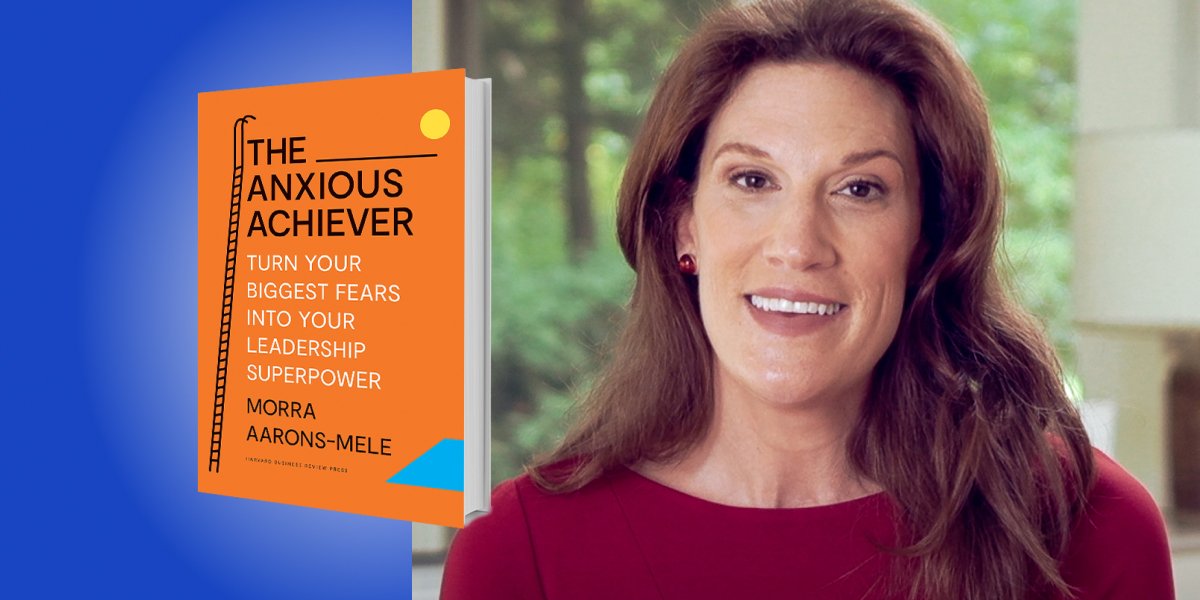The Anxious Achiever Press and Newsletters
Editors, journalists, and podcasters: Connect with Morra here.
‘It doesn’t have to be this hard.’ A former Harvard VP talks about her struggle with anxiety to help others who suffer
Morra on Fortune.com recently spoke with Diane Patrick about mental health in the workplace.
Perfectionism holding you back? 3 ways to shift the habit
So what’s driving your perfectionism? Is it about proving your worth to others? Is it about avoiding feelings of shame or judgment?
Morra on the Read to Lead Podcast with Jeff Brown
Turns out anxiety disorders are the most common mental illnesses in the world. But in our workplaces, anxiety has been a hidden problem—there in plain sight but ignored. Until now.
How to Release Some Control.
The state of our mental health has a profound impact on how we work and manage others.
What's the Difference Between Good Stress and Bad Stress?
Stress is an inevitable part of life, but it’s not always negative.
How Managing Your Anxiety Can Make You a Better Leader
The business world has increasingly begun to recognize the importance of mental health, but we still have a long way to go in openly acknowledging our challenges with it.
All About My Mother
My mother was here last week for my book launch. (Yes! My new book – The Anxious Achiever – an FT Book of the Month, no. 1 New Anxiety Release on Amazon and Next Big Idea Club Book of the Month is on sale now!) In earlier conversations, I told my mother it was a bad time for me but she came to visit anyway. I really needed physical and emotional boundaries from her to focus on my work and my own complicated emotions about my work. But I did not set those boundaries. Despite years of therapy, I did not protect myself. I fell back into the co-dependent pattern of my childhood.
The Anxious Achiever Chosen for Next Big Idea Book Club
Do you ever find yourself struggling with worry and dread about everything that could go wrong?
Anxiety has increased since 2022: How to make friends with it
If you're not anxious, are you really living? Digital consultant (and Lexington mom) Morra Aarons-Mele hosts “The Anxious Achiever“ leadership podcast, in which she slices into the gritty underbelly of what so many working parents face: a sense of imposter syndrome, of striving and wondering why, of nerves around finances (college, anyone?), and that endless slog toward contentment.
Fast Company: How to Harness Your Anxiety
The brain’s main job, quite literally, is to keep us alive. It does this not only by regulating things such as heart rate, blood pressure, and body temperature, but by constantly scanning our environment for potential threats. All of this occurs without our conscious awareness in the limbic system, thought to be the oldest, most primordial part of the brain.
The Boston Globe: Parenting Unfiltered
If you're not anxious, are you really living? Digital consultant (and Lexington mom) Morra Aarons-Mele hosts “The Anxious Achiever“ leadership podcast, in which she slices into the gritty underbelly of what so many working parents face: a sense of imposter syndrome, of striving and wondering why, of nerves around finances (college, anyone?), and that endless slog toward contentment.
Do you **need** to be right?
Leaders must make decisions. The buck stops with somebody – probably you. Sometimes leaders have to be right, says Martin. That’s good. But if we always need to be right because we’re scared to be wrong, our anxiety is managing us. Here are three things your anxiety might be telling you.
How High Achievers Overcome Their Anxiety
Morra is featured in Harvard Business Reviews magazine and explains the 11 most common thought traps—all-or-nothing thinking, labeling, jumping to conclusions, catastrophizing, filtering, discounting the positive, “should” statements, social comparison, personalization and blaming, ruminating, and emotional reasoning—and recommends strategies for overcoming all of them.
Want to disrupt yourself? Look anxiety in the face!
Like a lot of anxious achievers, for many years Whitney used work as a way to avoid feeling anxiety. She was an investment banker- which she jokingly calls a great job for anxious people. Now, Whitney is a globally known leadership author, coach, and advisor who has created the conversation around the idea of disrupting yourself. When you disrupt yourself, you are “stepping back from who you are today to slingshot into who you want to be.” Disrupting yourself is a mechanism of growth and change. We are wired to grow.
Is Your Online Life Making You Anxious And Lonely?
My podcast guest this week, Isa was a published chemist when she was 19, was a PhD candidate in Chemistry, and then had a big career on Wall St. before she pivoted to create a startup. As Isa opened up about her experience with loneliness, depression, and anxiety she found many shared her loneliness. “The world feels so lonely. I think sometimes because everyone is socialized to share the perfections and the things that went well. But sometimes when you start to share those things that did not go well, you realize, wow, there's so many other people that are experiencing that too.”
Sick of talking about mental health at work?
If you’re sick of talking about mental health at work, maybe you’re talking about it wrong. We cannot hide behind our anxiety. Mental health challenges are not an excuse. But by the same token, we need to acknowledge the realities of how mental health affects performance.
Here's How Women (And Men) Can Use Emotion at Work Strategically
Emotions at work are gendered. I bet every professional woman is familiar with the constant impression management that goes along with career growth. We know how to modulate the questions we ask men so we don’t affront or threaten.* We dance between showing empathy and vulnerability and being “too emotional,” or God forbid, “messy.” And this dance puts us in a double-bind, says my podcast guest Marianne Cooper, PhD. Cooper is a sociologist at Stanford University where she conducts research on gender, women’s leadership, diversity and inclusion, the future of work, financial insecurity, and economic inequality.
A Magic Negotiating Tactic for Anxious People (Or Anyone!)
Negotiating is emotional. We can use emotion strategically when negotiating, but the emotion of anxiety can trip us up and take away our power. When I get anxious in a negotiation, my careful planning goes out the window and I go off-script. Anxious brain takes over, and I might get flooded with emotion and become impulsive, distracted, or flustered. And so I need to press pause. That’s why this tactic is a game changer, and it’s from this week’s podcast guest, negotiation professor Moshe Cohen.
Depression and the "Performance of Wellness"
This week The Anxious Achiever features two powerful men who experienced severe mental health challenges. Darshan Patel’s Bipolar disorder led him to betray his family and create big financial debts even while he climbed as an executive. Lenny Mendonca was a Partner at McKinsey for many years. When he left McKinsey, he became active in public service, and agreed to join California Governor Gavin Newsom as his Chief Economic and Business Advisor.
Help! My brain never shuts off.
Meredith never thought of herself as an anxious person. “The word ‘worry‘ never meant anything to me. I was a problem solver. Give me a problem no matter how large - like climate change- and I will attempt to solve it. I thought any system could be improved by working hard enough to find an answer; do enough research and you could find a way. I spent a lot of time thinking about things and rehashing. I did not have boundaries. I did not understand how to do things less than a hundred percent. And I didn't even realize that overthinking was something that could negatively impact me.”














